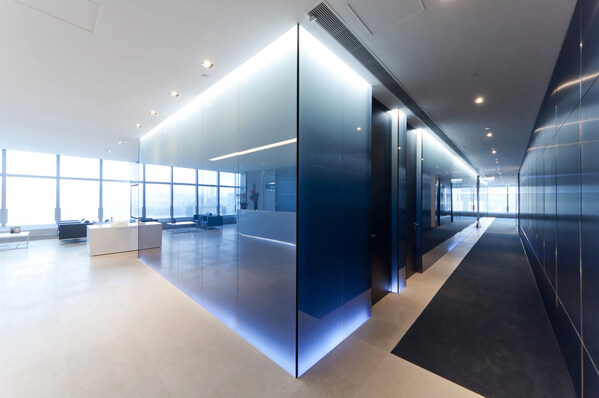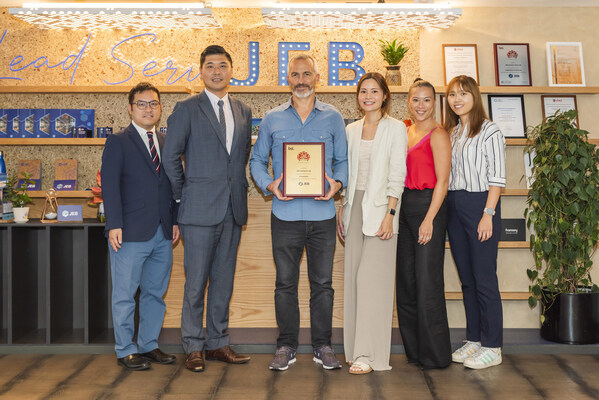 |
HONG KONG, Sept. 10, 2024 /PRNewswire/ -- As the world grapples with increasingly severe environmental challenges, the building and real estate industry, as a major contributor to global carbon emissions, is under intense scrutiny. Accounting for a staggering 39% of global carbon emissions, this sector is projected to double its emissions by 2050. With a burgeoning population and a growing demand for new construction and infrastructure, the Asia Pacific region, home to 60% of the world's population, is at the epicentre of this challenge.
Within the building and real estate sector, Operational carbon and Embodied carbon are the two major sources of emissions. While operational carbon accounts for 28% of emissions, embodied carbon, which includes the emissions generated during the manufacturing and transportation of building materials, has seen a sharp increase and is projected to match operational carbon by 2050 at current construction rates.
With such massive growth on the horizon, governments and businesses across Asia Pacific have started tackling carbon emissions and construction waste. The Hong Kong region's "Energy Saving and Green Building" (節能綠建) scheme is a great example, and Singapore's green building labels are pushing the property and construction sectors towards net-zero by 2050. However, there is still room for improvement in addressing embodied carbon, and more action is needed in this area.
The Hidden Carbon Footprint of Interior Fit-Outs and Furniture
In fit-outs and refits, embodied carbon emissions are markedly higher when procuring new products and disposing of existing items in landfills rather than recycling or reusing them. One often overlooked aspect of embodied carbon is the significant emissions associated with interior fit-outs and furniture. The manufacturing, transportation, and disposal of materials used in interior fit-outs contribute substantially to the overall carbon footprint of buildings.
To mitigate this, it is crucial to implement comprehensive waste management plans and prioritise the use of durable, repairable, and reusable products to extend their lifespan. Manufacturers should also adopt product environmental declarations (EPDs) to provide transparent information about their products' environmental impact and drive industry-wide sustainability.
JEB Group Sets New Industry Benchmark with Asia Pacific's First ISO 14067 Certification for Partition Systems
JEB Group is a leading provider of sustainable office fit-out solutions, their expertise extending beyond high-performance acoustic partition systems to encompass office furniture solutions and sustainable waste management. Dedicated to helping clients create efficient and comfortable work environments, while adhering to corporate's rigorous sustainable design principles and ESG standards.
As a pioneer in the Asia Pacific region, JEB Group has taken a proactive step towards carbon transparency. The company has achieved dual ISO certification, passing the ISO 14064-1 standard audit and obtaining ISO 14067 certification for their partition system products. Both certifications were awarded by the British Standards Institution (BSI), making them the first architectural product provider in the Asia Pacific region to obtain ISO 14067 certification, making the carbon emissions data of partition products transparent and quantifiable. This transparency fosters trust and credibility, making JEB Group a preferred partner for businesses seeking sustainable office solutions.
Given its inherent soundproofing properties, glass acoustic partitions, when combined with specialised acoustic treatments, can effectively block noise while maintaining transparency. This dual functionality of aesthetics and practicality has made them a popular choice for modern office interiors. However, like all building materials, glass partitions contribute to carbon emissions. By providing carbon footprint data for their acoustic glass partitions systems, this can help businesses achieve higher scores in international green building certifications such as LEED and BEAM Plus for their properties, thereby advancing sustainability goals.
Rob Wall, CEO of JEB Group, commented, "We are honoured to be the first company in the Asia Pacific region to achieve ISO 1407 certification for our acoustic partition systems. This certification is a testament to our commitment to environmental protection, meeting the growing market demand for sustainable solutions. We look forward to collaborating with more industry partners to drive the development of green offices and create a more sustainable future."
As a company rooted in the Asia Pacific region for 34+ years, JEB Group recognises its responsibility in addressing global emissions. Beyond reducing its own carbon footprint, the company is also committed to encouraging other businesses to join the movement towards a sustainable future. Through its Sustainable Office Solutions initiative, JEB Group has already successfully reduced over 7,000,000 kg of carbon emissions and prevented nearly 100,000 pieces of furniture from landfill.
About JEB Group
JEB Group is a leading provider of customised acoustic partitions and office furniture solutions, with a presence in the Hong Kong region, China, Singapore, and Malaysia. With a strong commitment to innovation, quality, and sustainability, JEB Group offers tailored solutions that meet the unique needs of our clients, while continually striving to minimise our environmental impact. For more information about JEB Group and our sustainability initiatives, please visit https://jebgroup.com/.
High Resolution Picture
https://drive.google.com/drive/folders/1233NxCunVQmrXSdEZiTjwPQq_byQ0LEE?usp=sharing
Contact:
Jenifer Mccombie, mccombie@jebgroup.com
Chief Marketing & Communications Officer
p (852) 5193 2733
m (852) 9523 8770
Vanessa Chiam, vanessachiam@jebgroup.com
Marketing and Communications Manager
p (65) 6978 1250
m (65) 8439 1827
Gianna Chan, giannachan@jebgroup.com
Marketing & Communications Manager
p (852) 3765 0850
• JEB Greater China Ltd •
source: JEB ASIA PTE LTD
【與拍賣官看藝術】走進Sotheby's Maison睇睇蘇富比旗艦藝廊!蘇富比如何突破傳統成規?► 即睇

































